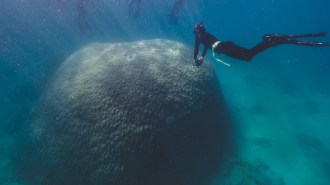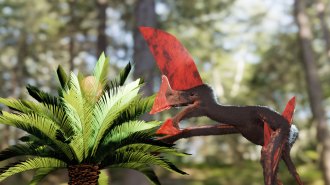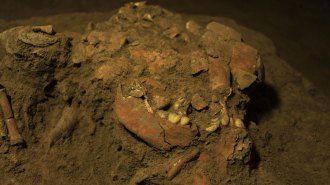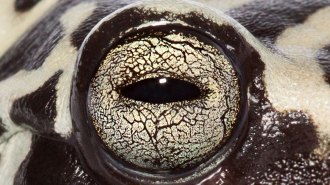Uncategorized
-
 Health & Medicine
Health & MedicineThese charts show that COVID-19 vaccines are doing their job
COVID-19 shots may not always prevent infections, but for now, they are keeping the vast majority of vaccinated people out of the hospital.
-
 Science & Society
Science & Society‘On the Fringe’ explores the thin line between science and pseudoscience
In his latest book, historian Michael Gordin surveys astrology, eugenics and other fringe movements to show how challenging it is to define pseudoscience.
-
 Astronomy
AstronomyNew ideas on what makes a planet habitable could reshape the search for life
New definitions of “habitable worlds” could include planets with global oceans under a steamy hydrogen atmosphere or exclude ones that started out habitable but lost all their water.
-
 Planetary Science
Planetary Science50 years ago, astronomers were chipping away at Pluto’s mass
Prior to the discovery of Pluto’s moon Charon, astronomers struggled to pin down the dwarf planet’s mass.
-
 Life
LifeAn incredibly resilient coral in the Great Barrier Reef offers hope for the future
At more than 400 years old, a massive coral off the coast of Australia has endured as many as 80 cyclones and 99 bleaching events.
By Nikk Ogasa -
 Science & Society
Science & SocietyGender-affirming care improves mental health for transgender youth
Several state legislatures have taken steps to restrict access to gender-affirming health care for transgender adolescents. That goes against medical guidelines.
-
 Animals
AnimalsFemale hummingbirds may sport flashy feathers to avoid being harassed
Some female white-necked jacobin hummingbirds boast bright blue plumage that’s similar to males. The colors may help females blend in to avoid attacks.
-
 Physics
PhysicsPhysicists caught protons ‘surfing’ on shock waves
A laser experiment could help scientists understand how protons reach high energies traveling through the cosmos.
-
 Paleontology
PaleontologyThis big-headed pterosaur may have preferred walking over flying
The most intact fossil of a tapejarid pterosaur ever found yields new insight into how the ancient reptile lived.
By Nikk Ogasa -
 Anthropology
AnthropologyAncient DNA shows the peopling of Southeast Asian islands was surprisingly complex
Ancient DNA from a hunter-gatherer skeleton points to earlier-than-expected human arrivals on Southeast Asian islands known as Wallacea.
By Bruce Bower -
 Science & Society
Science & SocietyRacism lurks in names given to plants and animals. That’s starting to change
Racist legacies linger in everyday lingo for birds, bugs and more. Some scientists see the chance to change that.
-
 Animals
AnimalsFrog and toad pupils mainly come in seven different shapes
Analyzing over 3,200 species revealed that the colorful eyes of frogs and toads have pupils shaped as slits, diamonds, fans and more.